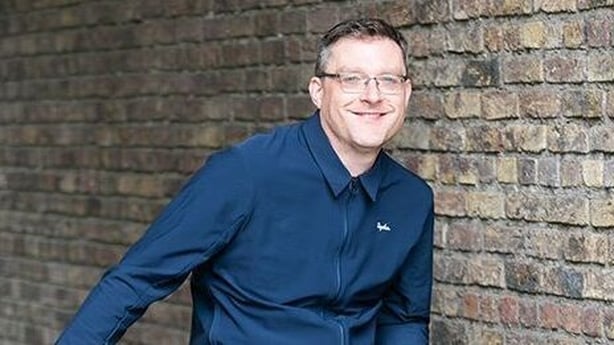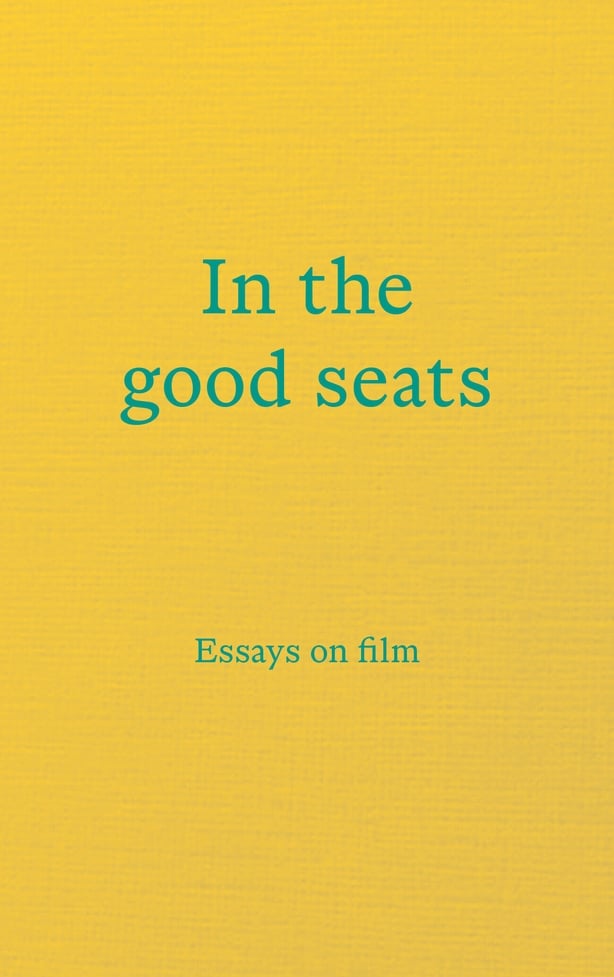We present an extract from the new anthology In the good seats: Essays on film - read Amazing Grace by Francis Halsall below.
In the Good Seats: Essays on Film is an arresting new collection of essays featuring some of the most talented writers working today, setting their sights on what's so alluring and moving about film and cinema.
The Grosvenor Cinema on Ashton Lane in Glasgow doesn't exist anymore, or at least not the version of it from 1995 when I started working there. The Grosvenor of the 1990s was pretty grotty. The foyer welcomed you in with a funky shroud of the vapour from a hotdog steamer, and the smells of stale popcorn and sweat with base notes of bleach and piss. The carpets were sticky with years of chocolate, chewing gum, and god-knows what else ground into them. Ghosts of old audiences for late-night screenings of grindhouse movies, porn, and art house fare hung around. Rumours and folklore haunted the place. There were tales of audiences queuing round the block to see Enter the Dragon in an auditorium that had half the seats taped off so the cinema didn’t have to pay the studio the full split. Mr Mac the rotund, tweed-suited manager who smoked nasty little cigars and inexplicably smelt of silage, loved telling the story of refusing to give Marti Pellow, the lead singer of Wet Wet Wet, a private screening with the riposte – 'Who do you think you are son? ’Ucking Frank Sinatra?’ There was a couple who’d come into the mid-week, mid-afternoon screenings, where they’d only have to share the place with the projectionist and a bored usher, to have furtive sex near the back under the projection box where they could barely be seen straddling each other. There was even talk of a projectionist who hanged himself in the projection box, during a screening of The Exorcist. The strict Catholic assistant manager had convinced herself that the actual reels of the film were possessed. I loved the place.
We need your consent to load this rte-player contentWe use rte-player to manage extra content that can set cookies on your device and collect data about your activity. Please review their details and accept them to load the content.Manage Preferences
Listen: In the good seats: Essays on film - RTÉ Arena takes a deeper dive
Cinema, unlike television or device screens, hits every sense. There’s nothing quite like the sound and smell of a late-morning kids screening. On Saturdays, parents and carers looking for some time off would leave their children in the dubious care of the cinema for a short time. Generally, youngsters don’t have the attention span to watch an entire film, no matter how much it is directed at them, so they tend to run around and make a lot of noise. It’s like when you put a handful of chewy sweets into a bottle of cola and shake it up; when you take one hundred small people and fill them to bursting point with high fructose pick’n’mix and Irn-Bru and let them career around and bounce off the walls and each other – all that stuff has to find a hole to come out of eventually. Glasgow felt enormous to me, at first. A month before moving there, we were driving through on our way to a hiking trip in the Highlands. At night the conurbation of Strathclyde was, as far as I could tell from the M74, occupied and illuminated in all directions as far as the eye could see. It seemed almost unimaginable that anyone living here would not be utterly overwhelmed, subsumed, and unmoored from community. But not leaving home was not an option. If I’d stayed in that small house at the inner edge of that small-minded town, there would have been some damage. The advice from a trusted teacher was that to get the most from university was to go to a big, northern town and Glasgow fit this description.

The mid-’90s was a great time to be in Glasgow. It was just before the wretched Cool Britannia wave crested and broke, and we were unaware of the long shadow cast by the Twin Towers that we lived under. History seemed to be moving pleasingly slowly. Labour was about to win a famous landslide victory, and to the soundtrack of Things Can Only Get Better George Galloway was returned as my MP for Glasgow Hillhead in the first (and last) time I voted in the UK. After Tony Blair’s government was returned in May 1997, the referendum of Scottish devolution was held in September, after which a new Scottish parliament was established and granted powers devolved from the Westminster-based UK government. No doubt the mood of local and national confidence and sense of belonging felt by those in Glasgow and Scotland was bolstered by films that celebrated heroic Scottish identity such as Loch Ness, Rob Roy, and, most of all, Braveheart. The two films that were playing when I started at the Grosvenor in 1994 both starred Mel Gibson and both offered a critical perspective on British (coded English) colonialism. Being English, I was told, it was part of my education to be sent down to tear tickets and monitor the halls for the next several weeks in what might have been presumed was a mild form of the Ludovico Technique of aversion therapy applied to Alex in A Clockwork Orange. It was, presumably, a corrective to my predecessors’ wicked actions. The Disney animation Pocahontas starred Gibson as the seventeenth-century English colonial explorer who falls in love with the titular Native American. Braveheart was produced and directed by Gibson who also takes the lead as the thirteenth-century Scottish nationalist freedom fighter. Being over three hours long, it required an interval to change the reels so I was sent down by the assistant manager in my tight, camp, midnight-blue waistcoat and dappled pink bowtie to sell ice creams. The screenings were unlike anything I have seen before or since and something of a shock to a naïve English boy from the suburbs of a small city. Folk would come to the late-night screenings in full costume with kilts, replica weapons, and faces painted for battle. The closing titles would roll with the audience standing on the seats shouting ‘Freedom!’ together in an act of collective union and almost religious fervour among strangers that was, to me at least, as unfamiliar as it was incomprehensible. This was something to which I did not belong.
About The Author: Francis Halsall is a lecturer in Visual Culture at National College of Art and Design, Dublin, where he is co-director of the master’s programme Art in the Contemporary World. He works on ideas of systems and their cultural and philosophical significance.

In the good seats: Essays on film is published by PVA Books - find out more here.

